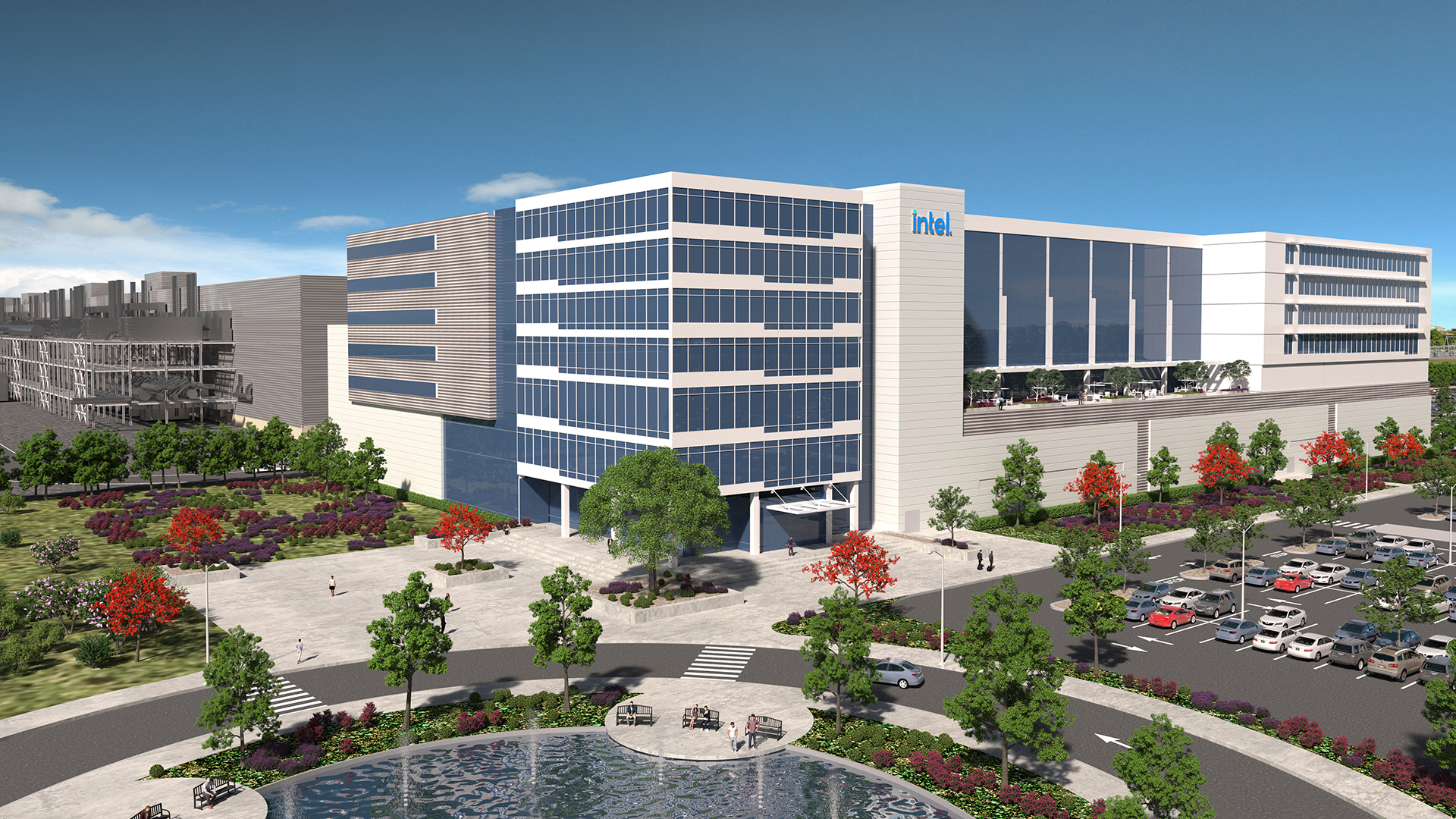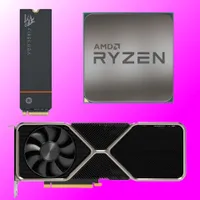Neolithic burial sites and now too much of the wrong soil type, Intel's new foundry in Germany isn't getting finished any time soon
Chip fabrication plants aren't quick to build but Intel was surely hoping it would be well under way by now.

Back in 2022, we reported on Intel's plans to construct a new chip-making facility in Magdeburg, Germany. The project hasn't been entirely smooth running, though, with a plea for larger subsidies rebuffed by the country's finance minister, followed by initial ground inspections turning up a large Neolithic burial site. Now it seems that construction will be delayed again—this time due to the ground having too much of the wrong type of soil.
That's according to the daily newspaper Volkstimme, local to the Madeburg region (via Andreas Schilling) which reports that Intel was hoping to commence the first stages of soil removal in a few months. However, it turns out that the site has more black soil (rich in organic matter) than expected. Schilling comments that in that area 40 cm is a typical depth but at the Intel site, it's as deep as 90 cm.
Due to its soft and loose nature, engineers can't build on top of it—or at the very least, not with that amount of black soil—as any large building will rapidly subside (and chip fabs are very large). Whatever solution they plan on doing, Intel won't be able to fully commence construction until 2025, pushing the schedule further behind.
Not that it's been particularly smooth sailing anyway. As with all major construction projects in the EU, the site underwent an archaeological survey, which uncovered a large Neolithic burial site.
Due to its wealth of fertile soil and loess, the Saxony-Anhalt region of Germany has been home to people for thousands of years. The area that Intel picked to build its new fab turned out to be a "highly complex, long-used burial and ritual landscape," according to Dr Oliver Dietrich.
Intel was also hoping to get a bit more cash out of the German government to help fund the build. But a request to increase the initial €6.8 billion investment to €10 billion was rejected by finance minister Christian Lindner.
Currently, Intel's only major presence in Europe is at Leixlip, Ireland, comprising two plants, Fab 24 and Fab 34. Chips have been manufactured in Ireland for many years, and some of the original Pentium processors were made in the initial foundry, Fab 10, back in 1993.
Keep up to date with the most important stories and the best deals, as picked by the PC Gamer team.
Fab 34 makes chips on the Intel 4 process node, as used for Meteor Lake CPUs, and it forms the backbone of Intel's plans to have a complete production chain based in Europe.
The chip foundry in Magdeburg is part of that plan, as is the project based in Wrocław, Poland, which is expected to carry out assembly and testing duties. Intel is hoping that this facility will be operational by 2027, but if the progress in Germany is any indication of how tricky major construction projects can be, that might not be ready to roll for a good while yet, too.
Best CPU for gaming: Top chips from Intel and AMD.
Best gaming motherboard: The right boards.
Best graphics card: Your perfect pixel-pusher awaits.
Best SSD for gaming: Get into the game first.

Nick, gaming, and computers all first met in the early 1980s. After leaving university, he became a physics and IT teacher and started writing about tech in the late 1990s. That resulted in him working with MadOnion to write the help files for 3DMark and PCMark. After a short stint working at Beyond3D.com, Nick joined Futuremark (MadOnion rebranded) full-time, as editor-in-chief for its PC gaming section, YouGamers. After the site shutdown, he became an engineering and computing lecturer for many years, but missed the writing bug. Cue four years at TechSpot.com covering everything and anything to do with tech and PCs. He freely admits to being far too obsessed with GPUs and open-world grindy RPGs, but who isn't these days?


